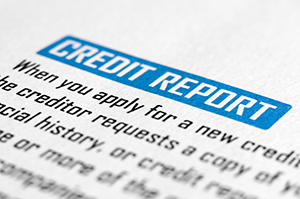Introduction
Let's say you let a friend borrow $50 and they never paid it back. Would you lend them another $50? Probably not. Banks feel the same way. If you don't pay them back, they don't want to lend you money again. Credit Reports provide information about whether or not you pay your bills. This lets banks know if you are creditworthy or not.
Credit scores are very important. You may be surprised to know that many employers will check your credit before offering you a job. Employers reason that if you can't manage your own money, then you can't be trusted with someone else's money or assets.
How do you get good credit? Who decides if your credit is good or bad? How do people find out if you have good, bad, or even no credit?

Following successful completion of this lesson, students will be able to...
- Analyze a sample credit report.
- Explain factors that determine your eligibility for a loan.
- Explain signs of credit problems.
- Describe steps for obtaining a credit report.
Enduring Understandings
- It is imperative to wisely manage your use of credit in today's economy.
The above objectives correspond with the Alabama Course of Study: Personal Finance standards: 10.